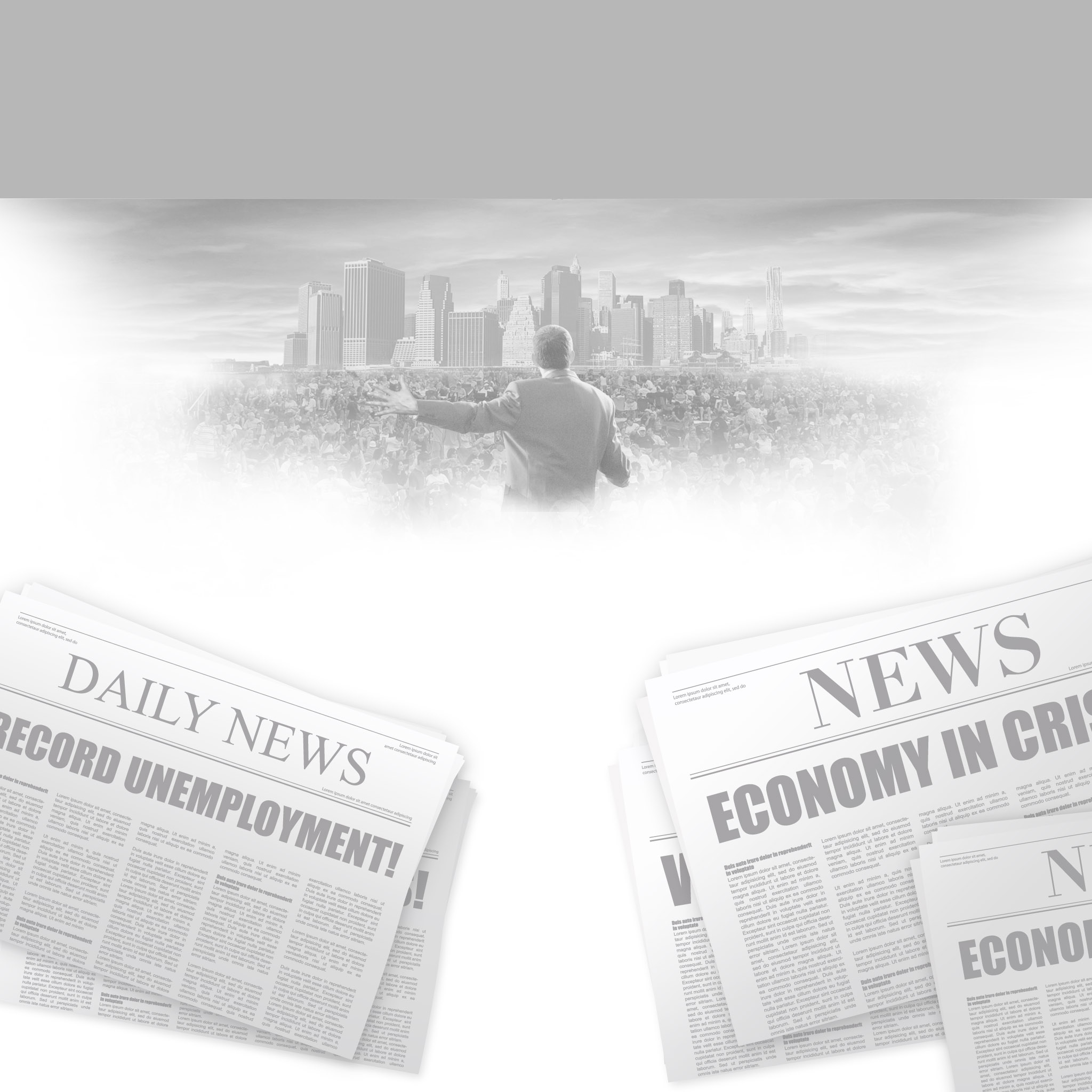Since the gaming industry became mainstream there were quite a few games that tried exploring complex issues of our society. However, most of them, like BioShock or Witcher, did that the same way as books or movies – through the story, where everything is told to us directly by the narrator.
Democracy 3 is a more rare type of game that tackles its themes through the gameplay itself. The developer only tells us the rules. How state institutions operate, how one policy influences another, how people within society are affected by this or that. Conclusions about the best ways of governing we draw ourselves, as the game forces us to feel on our own back the problems that arise for any politician.
That’s statistics!
Basically, all you see in the game is statistics. GDP, various taxes, crime rate, unemployment – everything is displayed in diagrams and graphs. And the state of your country (you can govern the USA, UK, Germany, Canada, France, and Australia) is fully described through the numbers.

Some of those numbers you can control directly. Amount of money spent on the military or science, taxes, restrictions… There are even laws and policies that you must introduce first and then set how far this “innovation” will go. Making police force armed with guns, teaching creationism, or evolution theory, defining how strict alcohol law should be… Everything has an adjustment slider attached.
There are dozens of policies you can introduce or cancel (yes, you can even abolish taxes). But there are a lot more things that you can’t control and have to influence indirectly. Unemployment, for example, depends on many factors – wages, labor laws, level of poverty (the latter itself is influenced by lots of things) – and if you try to use all available “political levers” to get everyone a job, you most certainly screw up with something else. Like decrease productivity due to strict anti-corporation laws for the industry. Or simply waste too much money on state benefits for workers.
If you screw up really bad, a crisis “situation” will develop. High crime rate will lead to organized crime syndicates, poor labor laws will compel people to go on a wide-nation strike, allowing ecology to go below a certain limit will get you an epidemic. And the worst thing about those situations is that to fix things it’s not enough to reach the state country was before you ‘triggered’ them. You have to make everything a lot better to actually stop the crisis.
Whom do you trust?
But the economy is only a part of the equation. Remember, that you’re a leader of a political party? So, first and foremost you must gain (and keep) your supporters’ trust.
Who are your supporters? That’s also for you to decide – the population is divided into many groups. Liberals, conservatives, environmentalists, industrialists, religious people, ethnic minorities… Some groups may overlap, some have entirely opposite interests. Obviously no one will be happy if you have poor ecology or high crime rate. But ‘stop and frisk’ policy that ensures greater security for many won’t sit well with the liberals. While for capitalists economy regulation is a hot-button issue.

While you’re at the point of choosing what electorate to cater to, don’t forget about your Cabinet of Ministers. Because each of them has their own political leaning and if you don’t satisfy that, the loyalty of the corresponding minister will plummet. That’s important, considering what a great bonus loyal and experienced ministers give you for implementing policies in their area of expertise. In addition, they provide the so-called ‘political capital’ that is needed to push for certain policies change. The more radical (and potentially unpopular) law you want to legislate, the more ‘capital’ is needed.

People, whose interests you’re not catering to, will form an opposition. In fact, many of the opposition groups are named after the real organizations – from ordinary activists to radicals and even terrorists. Yes, as you go further against them, they will start to resist and even plot against you. At this point, you can start to think that spending more on surveillance and gun control is not such a bad idea to prevent assassination attempts. But what if your platform is a free and liberal state? Now, that’s a dilemma…
It’s just a game…
While the game totally can make you imagine yourself as the head of the political party, there are a few hiccups that stand in the way.
The first one is the interface – at first glance, it’s clean and ergonomic. But as you dig further into the details of the governing, you’ll find it lacking functionality. For example, there is no way to quickly find statistics or policies by name. Which is quite an inconvenience when you have to pull and check many parameters per turn.

And when you introduce new policies, you can’t return ‘political capital’ for them if you decide that you don’t need them after all. Found that arming police is too costly or even the maximized luxury tax won’t help you? Wait another turn to make new suggestions or reload the game to try another policy. I’m not even starting on ‘critical situations’ that develop without any warning. Was it so hard to draw ‘situation develop’ threshold on the graphs?!
And speaking of graphs. When you move sliders sometimes it’s not clear how one factor affects the other. At one point I saw that GDP contributes to unemployment. What? Ah, maybe it’s low GDP that contributes unemployment… Did I get it right? I don’t know.
Honestly, some dependencies don’t really make sense. Like the game says the conservative populace is the opposite of liberals? But in reality, its authoritarians are the opposite of liberals. Of course, you can argue that conservatives are authoritarians, but as I said at the start of this review – this game is about proving political points though gameplay. So, it should make authoritarians and conservatives separate groups and then show me that those are the same. Not just make an assumption.
The last problem is that the developer himself had essentially abandoned the project. And while it’s true that during the years after the game release most of the problems were fixed, if you stumble upon some survived bug, there will be no one to help you.
Election Result
Despite its flaws, Democracy 3 is a good political simulator. Or at least simulator of a political party engaged in domestic politics. Obviously foreign politics here is limited to some ‘events’ and other aspects of government work are totally left out. After all, it’s just a one-person indie project.

Still, you can try to correct things using mods. In fact, the game is quite easily moddable. But then again, if you stumble upon a bug or don’t understand some nuance in mod creation – no one will help you.
But if you won’t going to tinker with game data, you’ll probably be fine. And will have a unique opportunity to immerse yourself in murky waters of democratic institutions and domestic politics. Feel how hard is to navigate there and how perilous this job is. Just don’t forget that this is only a game, that isn’t necessarily accurate in every single area.







